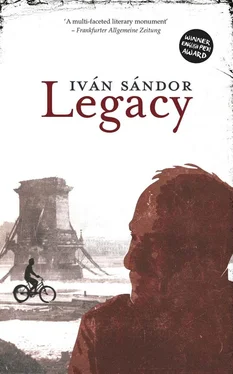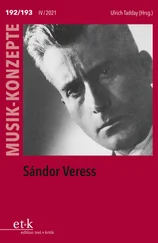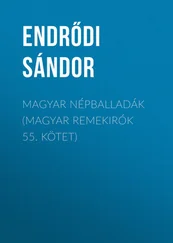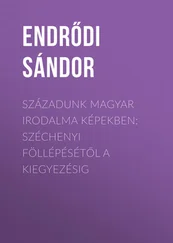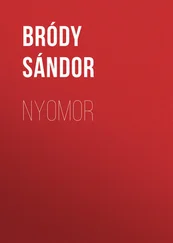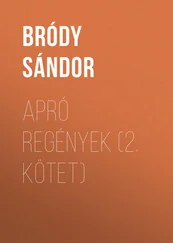We are called survivors . That was how we were introduced to the recording crew. While roaming the corridors the conviction grows in me that, although I was briefed that the moderator of the discussion was going to use that term, I have to object to it. It is not a role in which I care to be cast. I am not a survivor, I am a witness, and perhaps my role when I am in front of the camera is to say a few words about the difference between the two. I have a certain acquaintance with the ways in which any story can be shaped, including what we refer to as history, with the cooperation of primped and war-painted, generally platinum-blond moderators, with their striped neckties or black polo-neck pullovers.
Dust and silence.
The plush blue covers have a rather faded hue; the frames of the mirrors and wings of the doors are drab. It gives an impression that the Grand Hotel has very much the look of the turn of the nineteenth and twentieth centuries. A pair of eyes staring uncomprehendingly at those coming in through the door. I wonder what sort of stories befell its new guests in that future, in relation to which diplomats’ tables, ministerial fountain pens, dinner jackets, uniforms, ladies’ fans and the waltzes struck up at soirées signified a by-now irrevocable past.
As I see it, Ágnes is stuck at the same junctions as I am. Maybe she also feels that at times like these one has to decide which way to take. She knew her stepfather as a kindly, bespectacled gentleman. As his stepdaughter she lived with him for decades in a cosy, secure atmosphere, yet she may well be wondering what he was really like. On the terrace of the hotel she had mentioned that his diaries might probably be most helpful to those who had not lived in close proximity with him, had not seen him in family surroundings as she had and thus were not compelled to confront the picture that emerges from the texts of the diaries.
I think Ágnes was alarmed by everything that Carl Lutz wrote about the indifference of Swiss diplomacy, the transgressions that he had recorded, and for decades she was unable to bring order, in speaking about it, to what was fact and what might, perhaps, be attributable to Carl Lutz’s pique. Ágnes, as I see it, possesses moral readiness, and that spurs her to explore and preserve a past that might not be her own, it is true, but from which she cannot free herself, it being her fate to follow in its footsteps.
Carl Lutz cannot have been active at number 36 Pannónia Street at the end of December 1944, she says, because he was not in a position to undertake any trips to cross from his place in Buda to the Pest bank.
But he had to be there.
It is quite certain he could not have been there, she says.
Does Ágnes know about something else?
Was Gizi remembering something else?
I am standing on the first floor of number 36 Pannónia Street, haversack on my shoulders. Those who are forming up in lines before the house report back that a black Packard with a diplomatic licence plate from the Swiss Embassy had pulled up.
By then we were in the cellar, says Ágnes. Nor were the telephone lines working then.
I go back across the first-floor corridor of the Grand Hotel. At the time Ágnes was all of six years old, so how could she have such an accurate memory?
If I press the brass door handles down one at a time, step through the twin-leaved doors of each room and were to find no one in the rooms or the lobbies, the staterooms or perhaps even behind the reception desk, I seem to hear the noise of steps from all quarters, snatches of conversation, a humming coming through walls from left and right, up and down, that is similar to the roar from the old conch shell. I keep it on my bookcase, never did give it back to Uncle Róbert or even say a word to Mádi; indeed, it did not come to mind even when she visited my place last autumn, as it is now such an integral item among my belongings, its roar, even without lifting it to my ear, is like the noise of the city merging with that of the trees in the City Park, of the sound of the trees in our garden when covered for winter, not so much the sound, or even the sigh, that goes with my breathing — the noise I sense emanating from all sides is that kind of humming. There are eight of us guests, everyone with their own story, the members of the television crew handling them like Etruscan vases, finds stored in the depths of archives, fraying folios, with delicate movements of the hand, with the fingertips, eight of us out of the multimillions. I don’t know what the others think. I am aware that only the director, the editor-reporter, the two interpreters trans lating from Italian to French, the diligent camera operators, the sound engineer and the assistants think that anything can be authentically invoked only in the question-and-answer game.
For me, however, that all-pervading roar is the authentic.
I don’t have a pipe to fiddle with to help me ponder enigmas. I do not even have a full tumbler of whisky on which to sip as I launch off on the mysteries. Prints of marvellous Impressionist paintings are hanging on the walls of the corridors, but it is certain that behind them there are no hidden doors behind which I might find reference maps.
Time loses its measurability. There is no point looking at my watch; I am walking in a broader space — time. I can hear scraps of conversation from the ground floor, words from behind doors. I descend the stairs, and the young doorman next to the reception desk greets me in Hungarian. He knows a few words in ten languages in which he can guide the hotel’s guests. Two cameras are being taken into the staterooms. Some people are carrying crates.
I go back to the first floor; someone steps out of each room, some complete strangers. Elderly ladies in straw hats, young men in jeans, polo-neck jumpers, two-pieces, Adidas trainers, stiletto heels. Ágnes appears in the doorway of room 10. My own is room 4, and I need to ask her when she first read Carl Lutz’s diary. Was it while her step-father was still living, and if so did she ask any questions? If so what were his answers?
I can’t see Ágnes, although only just now she was on her way downstairs.
I go back down the stairs and enter the main lobby.
On the left is some Flemish furniture. This may be where prime ministers drank their coffees in 1925. A piano near to a double glass door leading on to an enormous balcony. A twenty-something blonde girl in white shorts and a red jumper is standing in front like a statue. Two elderly gentlemen in armchairs covered with gold-coloured silk upholstery are in conversation, holding glasses full of mineral water, beside the huge oval negotiating table; one is wearing britches, the other white gaiters.
Ágnes is seated on a Thonet bentwood chair in the far corner; it is a long walk across the hall to reach her, with my path being blocked by a group of tourists that must have just arrived but already wish to see the historical paraphernalia and are obscuring Ágnes. By the time I reach the far corner I do not find her, so I go out and hurry along corridors, opening doors to look in rooms, imagining at each turning that I can see her in front of a door, but by the time I reach it she is nowhere to be found. It is as if I am wandering around a haunted castle, albeit one I’d been to before, although maybe I’d read about a castle like this, an enormous, incomprehensible building in which nothing is what it seems: the hotel’s walls extend beyond the park, the gravelled paths, the lake, the mountain peaks, as if the location were appearing on a screen and is inaccessible. It is reflected. As if my presence has also been manufactured.
A door slams behind me, another opens in front. Writing pad in hand, a continuity girl arrives in jeans, white blouse, a black waist-coat, blonde hair cascading on to her shoulders. We agree in English that the recording won’t be starting tomorrow morning but at two o’clock in the afternoon. Yes, of course, I can come in a leather jacket. Leone will pose the questions in French, Anna will translate my answers into Hungarian, and in the technical unit a Hungarian— Italian interpreter will relay a translation into Leone’s earphone.
Читать дальше
